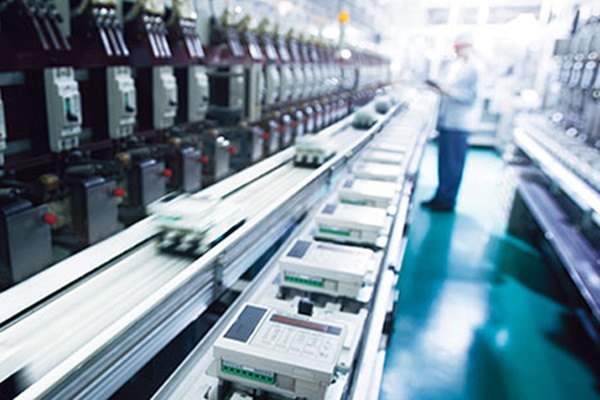Digital transformation has become a crucial part of industrial evolution. Companies are relying on modern technology to stay relevant in a highly competitive market. Close margins, inflation, and high competition are some of the driving factors behind this change.
IIoT which stands for Industrial Internet of Things is a new-age technology that enables companies to introduce factory automation systems to optimize efficiency and achieve tremendous growth. Let us know about this technology in depth:
What is IIoT?
IIoT is an important technology that plays a huge role in transforming manufacturing space and making it a “smart factory.” Companies are employing IIoT to optimise their process including operation, logistics, and supply chain. IoT devices such as IoT sensors, cameras, and other industrial equipment are introduced in the factory that optimise operation in a cost-effective and time-saving manner.
Top companies like Mitsubishi Electric India manufacture these automation and processing devices laced with the latest technology. Controllers, drive products, electrical discharge machines, and laser processing machines are some of the products manufactured by the brand. It is important to incorporate stable and dependable IIoT devices in a factory as the data collected from these devices are in high volume.
The crucial information that is collected with these devices ensures negligible downtime, reduced redundancy, and increased productivity.
The Importance of IIoT
In simple words, IIoT means incorporating IoT in a factory environment. Smart devices, sensors, and equipment are used to gather this crucial information. The data collected from various sources go through the process of sorting, configuring, and analysing. The top management of the company can utilise this data and real-time insight to make important decisions. Besides this, this information plays a key role in the predictive analysis and descriptive solutions. All of this helps in minimising human error and making the entire system faster and more efficient.
For instance, computerised numerical controllers are used in factories to offer high-speed and high-precision machining. The device helps in increasing the overall productivity in diverse types of industries.
IIoT uses artificial intelligence and machine learning to bring the perfect alignment between the device and platforms. It brings in a factory automated system and successfully establishes a cyber-physical system.
IIoT is incorporated to ensure faster on-demand production and easier customisation to be ahead of the competition.
Why are Manufacturers Moving Towards Industrial IoT?
The manufacturers moved towards industrial IoT because of the higher efficiency and productivity. With IIoT system, manufacturers could achieve fewer downtimes, predictive maintenance schedules production cycle decisions, and more. However, it does not stop there. Today, it is also about innovation. The huge sum of data gathered through these devices can change the trajectory of a company if it is utilised well. It can help a lot in product development, and other key decisions. Companies can conceive an idea and make it big in the business world using the power of IoT. It can fulfil customer’s expectations by implementing customisation.
Today, some of the best brands like Mitsubishi Electric India have a solid product line when it comes to factory automation systems. Controllers. Human-machine interfaces, drive products, and industrial robots are some of the innovative systems that can help companies see a bright future with smart factories.


No comments yet